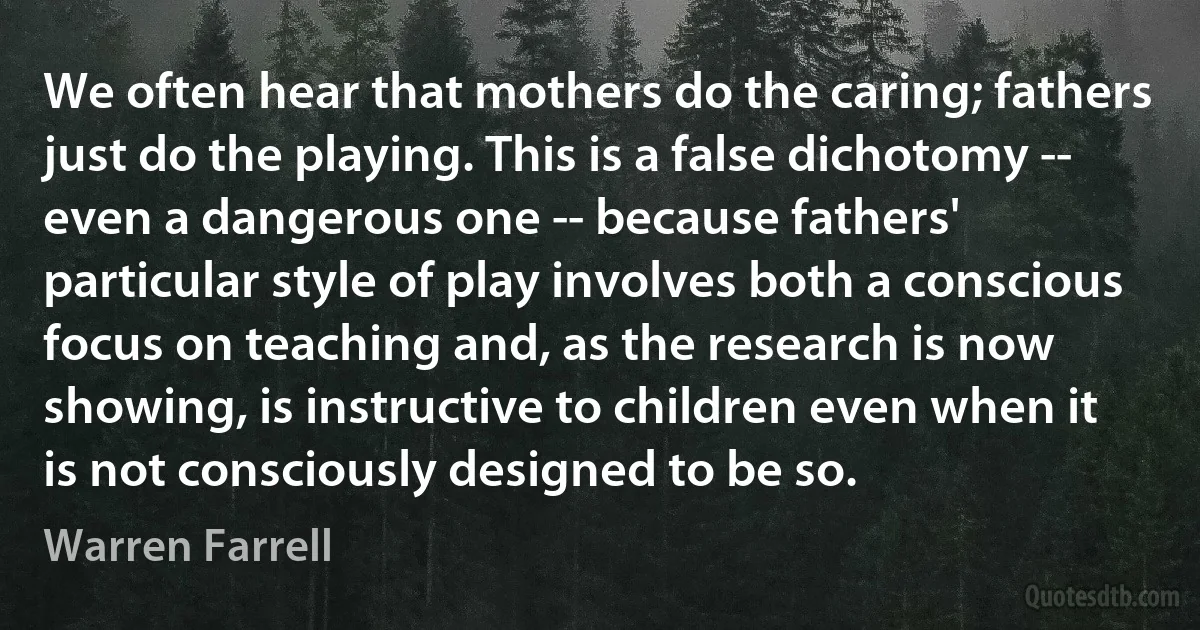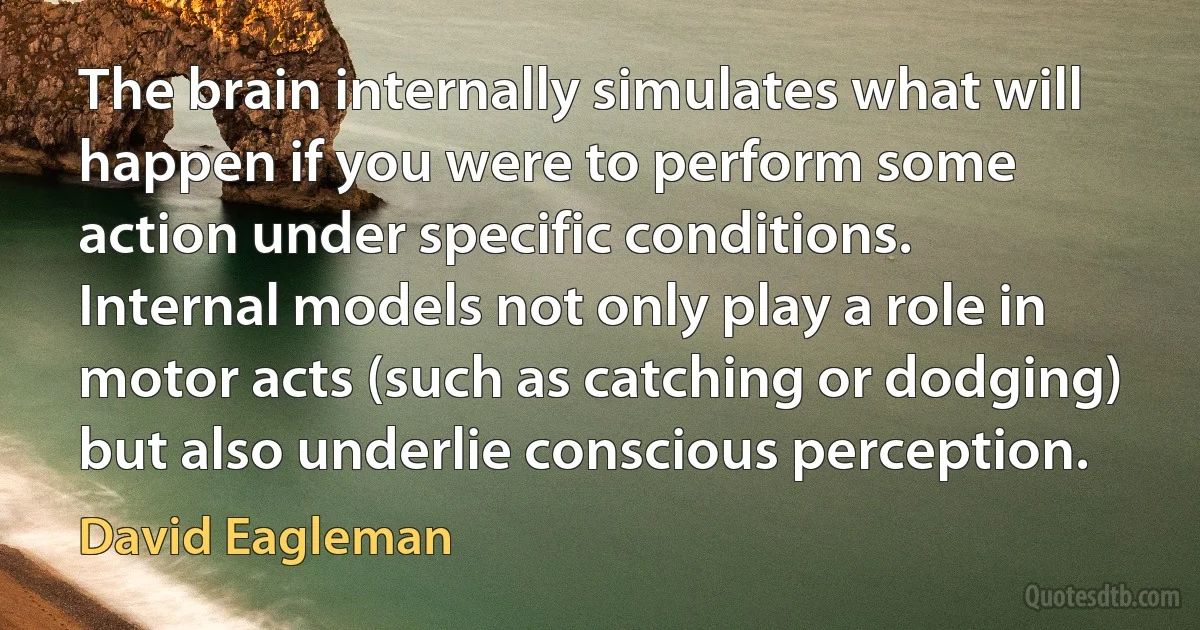Conscious Quotes - page 52
Mr. Mets is representative not only of the general public, but also of many scientific workers, publicists, and writers. Like most people, he takes words as much for granted as the air he breathes, gives them about as much thought. [...] But Mr. Mets, like the rest of us, also adjusts himself automatically to changes in the verbal climate, from one type of discourse to another, from one set terms to another, from the listening habits of one kind of social occasion to those of another kind of social occasion, without conscious effort. He has yet, however, to acknowledge the effect of his verbal climate on his mental health and well-being.

S. I. Hayakawa
I feel it's the conscious mind that messes things up. The conscious mind is constantly telling you, this might happen or that might happen, even before it has happened. Your conscious mind tells you the next ball might be a out-swinger, but when it's coming at you you realize it's an in-swinger... so literally, you've played two balls.

Sachin Tendulkar
Of all forms of symbolism, language is the most highly developed, most subtle, and most complicated. It has been pointed out that human beings, by agreement, can make anything stand for anything. Now, human beings have agreed, in the course of centuries of mutual dependency, to let the various noises that they can produce [...] stand for specified happenings in their nervous systems. We call that system of agreements language. For example, we who speak English have been so trained that, when our nervous systems register the presence of a certain kind of animal, we may make the following noise: "That's a cat." Anyone hearing us expects to find that, by looking in the same direction, he will experience a similar event in his nervous system -- one that will lead him to make an almost identical noise. Again, we have been so trained that when we are conscious of wanting food, we make the noise "I'm hungry."

S. I. Hayakawa
The conscious mind is a maelstrom of fleeting thoughts, images, sensations, feelings, conflicting desires, and doubts; barely able to confine its attention to a single clear objective for a microsecond before secondary thoughts begin to adulterate it and provoke yet further trains of mental discourse. If you do not believe this, then attempt to confine your conscious attention to the dot at the end of this sentence without involving yourself in any other form of thinking, including thinking about the dot.

Peter J. Carroll
We feel like more than just the sum of a trillion neurons. We feel like more than just three pounds of wet flesh, and so simply describing the brain in terms of its neurotransmitters and neurons and all these chemicals and exciting ingredients doesn't fully grapple with what it feels like to be human, the first person subjective experience of being a conscious being. When you think about the really grand epic questions of neuroscience ... what is consciousness? How can we form a scientific explanation for consciousness, for human experience? That is the holy grail.

Jonah Lehrer
Last year, I filed Senate Bill Number 123 which penalizes bus drivers who commit criminal negligence in road mishaps with 20 years of imprisonment. The existing preventive policies require more teeth to achieve safety benefits. There is no guarantee to prevent all road accidents because of many factors including human, mechanical and environmental. But regulators like the LTO and the LTFRB carry the weight of preventing fatal accidents before these happen by strictly implementing the road safety fundamentals of all public utility vehicles. They have the responsibility to make all public transportation reasonably safe to drive and to travel on. These regulators must do their jobs. Stern measures need to be strictly implemented to ensure road safety. Conscious efforts from all sectors of government and the society should be at high level to avoid further loss of lives and damage to person and property. .

Francis Escudero
Secretary of War Stimson, visiting my headquarters in Germany, informed me that our government was preparing to drop an atomic bomb on Japan. I was one of those who felt that there were a number of cogent reasons to question the wisdom of such an act. ...the Secretary, upon giving me the news of the successful bomb test in New Mexico, and of the plan for using it, asked for my reaction, apparently expecting a vigorous assent.
During his recitation of the relevant facts, I had been conscious of a feeling of depression and so I voiced to him my grave misgivings, first on the basis of my belief that Japan was already defeated and that dropping the bomb was completely unnecessary, and secondly because I thought that our country should avoid shocking world opinion by the use of a weapon whose employment was, I thought, no longer mandatory as a measure to save American lives. It was my belief that Japan was, at that very moment, seeking some way to surrender with a minimum loss of 'face.

Dwight D. Eisenhower
You are angry with your neighbor, you despise him, do not like to speak peaceably and lovingly to him, because there is something harsh, abrupt, careless, unpleasant to you in his character, in his speech, in his manners-because he is more conscious of his dignity than perhaps is necessary; or because he may be somewhat proud and disrespectful; but you yourself, your neighbor's physician and teacher, are more guilty than him.

John of Kronstadt
In trying to analyse the various elements in the Congress, the dominating position of Gandhiji must always be remembered. He dominates to some extent the Congress, but far more so he dominates the masses. He does not easily fall in any group and is much bigger than the so-called Gandhian group. That is one of the basic factors of the situation. The conscious and thinking Leftists in the country recognise it and, whatever their ideological or temperamental differences with him, have tried to avoid anything approaching a split. Their attempt bas been to leave the Congress under its present leadership, which means under Gandhiji's guidance, and at the same time to push it as far as they could more to the left to radicalise it, and to spread own ideology."

Jawaharlal Nehru
The poetry of Dante may be considered as the bridge thrown over the stream of time, which unites the modern and ancient world. The distorted notions of invisible things which Dante and his rival Milton have idealized, are merely the mask and the mantle in which these great poets walk through eternity enveloped and disguised. It is a difficult question to determine how far they were conscious of the distinction which must have subsisted in their minds between their own creeds and that of the people. Dante at least appears to wish to mark the full extent of it by [The Divina Commedia] .
Dante was the first religious reformer, and Luther surpassed him rather in the rudeness and acrimony, than in the boldness of his censures of papal usurpation. Dante was the first awakener of entranced Europe; he created a language, in itself music and persuasion, out of a chaos of inharmonious barbarisms.

Dante Alighieri
Egocentrism in so far as it means confusion of the ego and the external world, and egocentrism in so far as it means lack of cooperation, constitute one and the same phenomenon. So long as the child does not dissociate his ego from the suggestions coming from the physical and from the social world, he cannot cooperate, for in order to cooperate one must be conscious of one's ego and situate it in relation to thought in general. And in order to become conscious of one's ego, it is necessary to liberate oneself from the thought and will of others. The coercion exercised by the adult or the older child is therefore inseparable from the unconscious egocentrism of the very young child.

Jean Piaget



